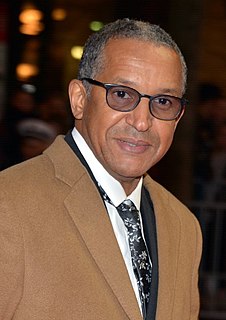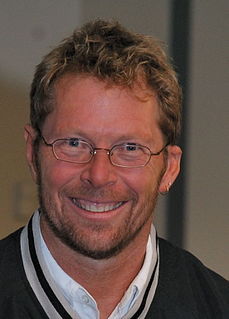A Quote by Karl Schroeder
Introducing a technology is not a neutral act--it is profoundly revolutionary. If you present a new technology to the world you are effectively legislating a change in the way we all live. You are changing society, not some vague democratic process. The individuals who are driven to use that technology by the disparities of wealth and power it creates do not have a real choice in the matter. So the idea that we are giving people more freedom by developing technologies and then simply making them available is a dangerous illusion.
Quote Topics
Act
Available
Change
Changing
Choice
Creates
Dangerous
Democratic
Democratic Process
Developing
Driven
Effectively
Freedom
Giving
Idea
Illusion
Individuals
Introducing
Live
Making
Matter
More
Neutral
New
New Technology
People
Power
Present
Process
Profoundly
Real
Revolutionary
Simply
Society
Some
Technologies
Technology
Them
Then
Use
Vague
Way
Wealth
World
Related Quotes
Of course, technology is very important now. It's there, its available. It's there to be use however you see fit. You can use it and the jihadist can use it. In their case they have been very effective at making use of technology, particularly with websites. It's primarily through these websites that they do their recruiting. But it's not technology that makes them that way.
Anyone who has studied the history of technology knows that technological change is always a Faustian bargain: Technology giveth and technology taketh away, and not always in equal measure. A new technology sometimes creates more than it destroys. Sometimes, it destroys more than it creates. But it is never one-sided. The invention of the printing press is an excellent example. Printing fostered the modern idea of individuality but it destroyed the medieval sense of community and social integration.
People always think of technology as something having silicon in it. But a pencil is technology. Any language is technology. Technology is a tool we use to accomplish a particular task and when one talks about appropriate technology in developing countries, appropriate may mean anything from fire to solar electricity.
Technology for me is discover, learn, evolve and implement. It combines 3Ss- speed, simplicity and service. Technology is fast, technology is simple and technology is a brilliant way to serve people. It is also a great teacher. The more we learn about technology and the more we learn through technology, the better it is.
The most revolutionary aspect of technology is its mobility. Anybody can learn it. It jumps easily over barriers of race and language. ... The new technology of microchips and computer software is learned much faster than the old technology of coal and iron. It took three generations of misery for the older industrial countries to master the technology of coal and iron. The new industrial countries of East Asia, South Korea, and Singapore and Taiwan, mastered the new technology and made the jump from poverty to wealth in a single generation.
What I’m trying to show is that the main event today is not seen by those of us that are living it… So it’s not the effect of [technology], it is that everything exists with-in [its milieu]. It's not that we use technology, we live technology. Technology has become as ubiquitous as the air we breathe, so we are no longer conscious of its presence.
The technologies that will be most successful will resonate with human behaviour instead of working against it. In fact, to solve the problems of delivering and assimilating new technology into the workplace, we must look to the way humans act and react. In the last 20 years, US industry has invested more than $1 trillion in technology, but has realised little improvement in the efficiency of its knowledge workers and virtually none in their effectiveness. If we could solve the problems of the assimilation of new technology, the potential would be enormous.



































